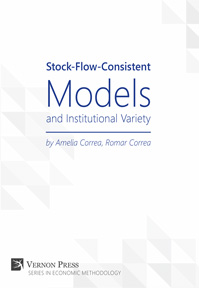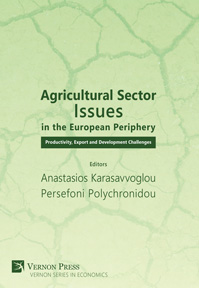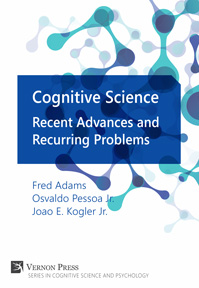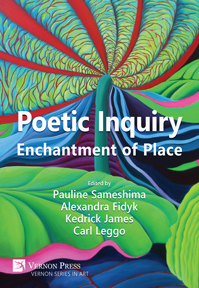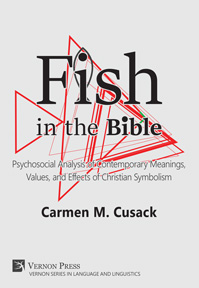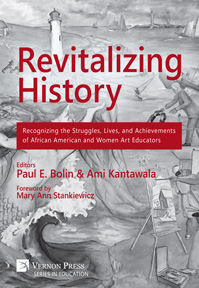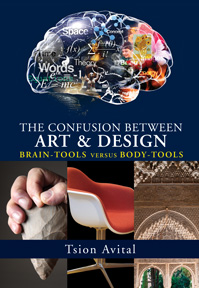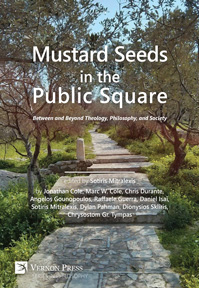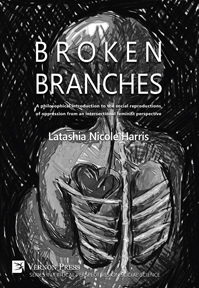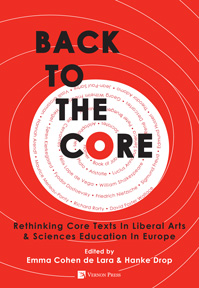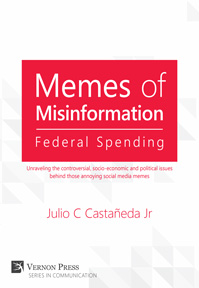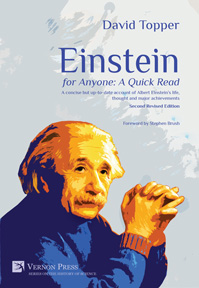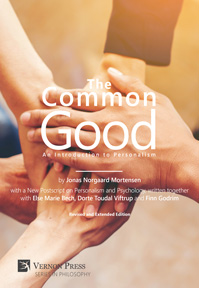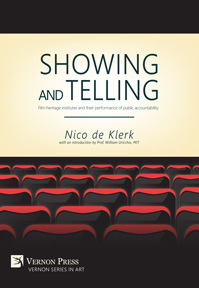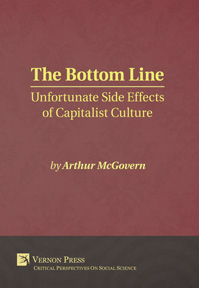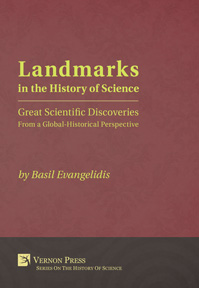Search
Browse
by Publication status
by Subject
Anthropology (28) Art (126) Business and Finance (27) Cognitive Science and Psychology (56) Communication and Journalism (49) Economics (63) Education (70) History (150) Human Geography (22) Interdisciplinary (43) Language and Linguistics (139) Law (16) Music Studies (19) Philosophy (162) Political Science and International Relations (105) Sociology (323) Statistics and Quantitative Methods (21)by Series
Series in Literary Studies (71) Series in Philosophy (59) Series in Education (55) Series in Sociology (46) Bridging Languages and Scholarship (33) Series in Politics (33) Series in World History (32) Series in Language and Linguistics (25) Series in Philosophy of Religion (22) Cognitive Science and Psychology (21) Series in American History (20) Critical Perspectives on Social Science (19) Series in Art (19) Series in Cinema and Culture (16) Series in Critical Media Studies (16) Curating and Interpreting Culture (15) Series in Anthropology (14) Series on the History of Art (14) Economics (14) Series in Business and Finance (13) Series in Music (12) Series in Communication (10) Series in Performing Arts (9) Philosophy of Personalism (8) Series in Law (8) Series on Climate Change and Society (8) Series in Economic Methodology (7) Women's Studies (7) Classics in Economics (6) Series in Economic Development (6) Philosophy of Forgiveness (5) Series in Built Environment (5) Series in Economic History (5) Series in Philosophy of Science (5) Series in Social Equality and Justice (5) Series on the History of Science (4) Serie En Estudios Literarios (3) Serie en Sociología (3) Series in Contemporary History (3) Series in Creative Writing Studies (3) Series in Design (3) The Interdisciplinary Built Environment (3) Serie en Comunicación y Medios (2) Serie en Historia (2) Serie en Música (2) Series in Heritage Studies (2) Series in Innovation Studies (2) Series in Philosophy of Race (2) Serie en Ciencias Políticas (1) Serie en Entorno Construido (1) Serie en Estudios Culturales (1) Serie en Filosofía (1) Serie en Filosofía de la Ciencia (1) Serie sobre Cambio Climático y Sociedad (1) Series in Classical Studies (1) Series in Economics of Technological Change (1) Series in Urban Studies (1)by Language
English Spanishby Author
Stock-Flow-Consistent Models and Institutional Variety
Romar Correa, St Andrew’s College, India
and Amelia Correa, St Andrew’s College, India
Availability: In stock
126pp. ¦ $55 £45 €52
Orthodox macroeconomics is founded on microeconomics. Heterodox economists either reject micro foundations or experiment with behavioural relationships without paying attention to the principles that generate them. The book takes off from Michal Kalecki’s aphorism about economics being a science that confused stocks and flows. Kalecki was famous for presiding over a marriage between Marx and Keynes and all three figure prominently in the volume. However, the first part of the title is a homage to Wynne Godley who pioneered stock-flow-consistent modeling in our times. The authors exploit lagged values of variables emerging from the definitions. Lags also emerge in so-called stock-flow norms connecting the aggregates. Some moving and shaking of identities and a difference or differential equation emerges. The requirements for stability of the dynamic systems are illuminating and the reader can stop at structure and history with the first half of the book. The conversation with orthodoxy begins with the second part. The equivalent equation systems of the first part throw up different pairs of characters whose happiness must be maximised over time. The price to pay through the solution process is the confrontation with many ugly expressions but the explicit calculations are undertaken repeatedly only to reassure students through drillwork that tedium is not the same as difficulty. The payoffs are that variable transitions in capitalism (the second part of the title) are captured from a small clutch of identities. The movements from backward agriculture to capitalism, from ‘golden age’ capitalism to ‘financialization’, are modeled. A separate chapter is devoted to Europe. The policy prescriptions of heterodox economics do not compare with the richness of critique and positive analysis. ‘Positive’ and ‘normative’ are one in this work, the combination of stock-flow norms along with ‘forgotten’ policy variables like the tax rate promising order and stability to economies.
Agricultural Sector Issues in the European Periphery
Productivity, Export and Development Challenges
Edited by
Persefoni Polychronidou, Central Macedonia Institute of Technology, Greece
and Anastasios Karasavvoglou, Eastern Macedonia and Thrace Institute of Technology, Greece
Availability: In stock
132pp. ¦ $40 £35 €38
Over the course of the past two decades peripheral European economies in the Balkans and in Eastern Europe have experienced significant structural changes and have adapted to the global economic environment. Agriculture and the processing, using and trading of agricultural products play an important role in their economies. This volume covers several issues facing the contemporary agricultural sector in these countries, such as the framework of the Common Agricultural Policy of the European Union, the identification of an opinion leader portrait in agriculture, the characteristics of using Information and Communication Technologies as tools in the partnerships and internal processes of enterprises throughout the whole agro-food supply chain, the increased need of small-scale artisanal food businesses to seek new markets abroad, the perceptions of Greek olive oil importers in the UK, the barriers that Greek yogurt entrepreneurs face during their export activities, the reasons for the differences in economic performance and the role of tangible and less tangible factors influencing development outcomes. It will be of interest to researchers studying economic development, agricultural economists, businesses active in the primary sector and students of applied economic analysis.
Cognitive Science: Recent Advances and Recurring Problems
Edited by
Joao Eduardo Kogler Jr., University of Sao Paulo, Brazil et al.
Availability: In stock
324pp. ¦ $75 £60 €69
This book consists of an edited collection of original essays of the highest academic quality by seasoned experts in their fields of cognitive science. The essays are interdisciplinary, drawing from many of the fields known collectively as “the cognitive sciences.” Topics discussed represent a significant cross-section of the most current and interesting issues in cognitive science. Specific topics include matters regarding machine learning and cognitive architecture, the nature of cognitive content, the relationship of information to cognition, the role of language and communication in cognition, the nature of embodied cognition, selective topics in visual cognition, brain connectivity, computation and simulation, social and technological issues within the cognitive sciences, and significant issues in the history of neuroscience. This book will be of interest to both professional researchers and newer students and graduate students in the fields of cognitive science—including computer science, linguistics, philosophy, psychology and neuroscience. The essays are in English and are designed to be as free as possible of technical jargon and therefore accessible to young scholars and to scholars who are new to the cognitive neurosciences. In addition to several entries by single authors, the book contains several interesting roundtables where researchers contribute answers to a central question presented to those in the focus group on one of the core areas listed above. This exciting approach provides a variety of perspectives from across disciplines on topics of current concern in the cognitive sciences.
Poetic Inquiry
Enchantment of Place
Edited by
Pauline Sameshima, Lakehead University, Canada et al.
Availability: In stock
382pp. ¦ $67 £55 €63
In the tradition of a decade of bi-annual gatherings of the International Symposium on Poetic Inquiry, this volume serves as the fifth refereed symposium anthology. Enchantment of Place celebrates poetry and poetic voices—theorizing and exploring poetic inquiry as an approach, methodology, and/or method for use in contemporary research practices. Poetic inquiry has increased in prominence as a legitimate means by which to collect, assimilate, analyze, and share the results of research across many disciplines. With this collection, we hope to continue to lay the groundwork internationally, for researchers, scholars, graduate students, and the larger community to take up poetic inquiry as a way to approach knowledge generation, learning, and sharing. This volume specifically works to draw attention to the ancient connection between poetry and the natural world with attention to broadening the ecological scope and impact of the work of poetic inquirers.
Fish in the Bible
Psychosocial Analysis of Contemporary Meanings, Values, and Effects of Christian Symbolism
Carmen M. Cusack, Nova Southeastern University
Availability: In stock
134pp. ¦ $54 £44 €51
Fish in the Bible: Psychosocial Analysis of Contemporary Meanings, Values, and Effects of Christian Symbolism analyzes why and to what end tales and truths about fish presented in the Bible hold water in Christian societies today. Fish in the Bible argues that portraits of fish and fishermen presented in the Bible have been both embraced and rejected by contemporary cultures with primarily Christian constituents (e.g. American culture). This book does not make an ethical argument; rather, it explores manners in which Christians have selectively rejected or accepted depictions and symbols of fish and fishermen. It explores differences between Christian maxims presented in Bible verses and the beliefs and actions of societies operating under Christian moral majorities. Fish in the Bible also considers the evolution of symbolism and metaphors in Christian society using parables and tales found in the Bible. Fish in the Bible works on several specialized topics to argue that, overall, depictions of fish and fishermen in the Bible significantly and subtly shape Christian cultures even when Christians ignore or dismiss the robust ways in which fish and fishermen are characterized and treated in the Bible. Fish serve as a metaphor for God’s power, judgment, sin, and fertility; they are used to instill boundaries and standards in practitioners; and sometimes fish are worshiped, demonized, and subjugated. There is no clear or singular message regarding fish or fishermen; and Christian societies are left to abide by a patchwork of representations to formulate their own opinions and judgments. Social and behavioral science, as well as cultural customs, commerce, and current events demonstrate Christians’ navigation and interpretations of what their understandings and treatment of fish and fishermen ought to be. An Introduction and Conclusion summarize and synopsize implications raised by symbolism and literalism in certain contexts, stories, and verses demonstrating potentially pervasive significances of fish in Christian cultures throughout the world. The foundations of this research are law, social and behavioral science, policy and politics, history, cultural studies, religious studies, animal studies, animal welfare, criminal justice, sociology, anthropology, and current events.
The American Untouchables: America & the Racial Contract
A historical perspective on race-based politics
Andre Smith, Harris Stowe State University
Availability: In stock
196pp. ¦ $60 £52 €58
The issue of race is often a scab Americans choose to ignore. However social science has a responsibility and an obligation to examine not simply the amenable subjects but also the controversial. This work, in a word, is controversial. Thomas Franks (2004) argued that cultural differences led white Kansans to abandon the Democratic Party for the Republican Party during the 1980s. He specifically argued that abortion was the unifying issue in this ideological migration. Simultaneously, future President Ronald Reagan opened his campaign for the presidency in Philadelphia, Mississippi, the sight of the massacre of four young civil rights activists over a decade earlier. Race has and is a factor in the American experience; Franks’ premise is simply that the absence of the concentration of African Americans in the Kansas area negated the influence of the “black threat hypothesis” on the observed ideological switch of white Kansans. This work argues that Franks’ premise fails to incorporate the over arching ideological switch of white voter migration to the Republican party that was occurring during the same period, and that Reagan’s speech in Philadelphia, Mississippi was an overt cue that he was rejecting the civil rights consensus for an historically established “race-based social contract” that positioned people of color outside the traditional bounds of the social contract. The study is a sociopolitical analysis of the African American experience utilizing the “racial contract” framework developed by Charles Mills. The “racial contract” holds that the social contract explicitly dictates interactions and transaction costs between citizens and government. Mills supposition is that historically non-Western Europeans were excluded from the penalties for violations of the social contract, and a tacit race based contract dictated transaction costs and interactions between Europeans and non-Europeans. The work utilizes the framework to trace the sociopolitical environment from the first appearance of Africans in America to the present. It has the supposition that the initial sociopolitical status of Africans in America was as a result of the reformation of the Western feudal agrarian culture, with African captives attached to the land as the neo-serfs; but that the reformation of feudalism was only possible within the context that Africans were implicitly viewed as outside the bounds of the codified social contract. It traces American sociopolitical conflict over the expansion of the “racial contract,” which was the basis of the American Civil War; and the establishment of an implicit sociopolitical order within the bounds of the racial contract at the end of the Civil War, with codified sanctions for violations of commensality and endogamy.
Revitalizing History
Recognizing the Struggles, Lives, and Achievements of African American and Women Art Educators
Edited by
Ami Kantawala, Teachers College, Columbia University
and Paul Bolin, University of Texas at Austin
Availability: In stock
210pp. [Color] ¦ $70 £58 €65
Historical inquiry forms the foundation for much research undertaken in art education. While traversing paths of historical investigation in this field we may discover undocumented moments and overlooked or hidden individuals, as well as encounter challenging ideas in need of exploration and critique. In doing so, history is approached from multiple and, at times, vitally diverse perspectives. Our hope is that the conversations generated through this text will continue to strengthen and encourage more interest in histories of art education, but also more sophisticated and innovative approaches to historical research in this field. The overarching objective of the text is to recognize the historical role that many overlooked individuals—particularly African Americans and women—have played in the field of art education, and acknowledge the importance of history and historical research in this digital age. This text opens up possibilities of faculty collaborations across programs interested in history and historical research on a local, national, and international level. By assembling the work of various scholars from across the United States, this text is intended to elicit rich conversations about history that would be otherwise beyond what is provided in general art education textbooks.
The Confusion between Art and Design
Brain-tools versus Body-tools
Tsion Avital, Holon Institute of Technology, Israel
Availability: In stock
428pp. [Color] ¦ $130 £107 €122
In the past century the borders have blurred between art and design. Designers, artists, aestheticians, curators, art and design critics, historians and students all seem confused about these borders. Figurative painting was reduced to graphic design while still being called 'art'. Figurative sculpture was reduced to nonfunctional industrial design while being called 'sculpture'. This fundamental blunder resulted from total misunderstanding of the concept of "abstraction" by the founders of modern art. Comprehensive analysis shows that so-called "abstract art" is neither abstract nor art, but a very simple, even trivial, kind of design. In this book the prehistoric, philosophical, logical, historic and religious sources of the confusion between art and design are analyzed. A new and coherent conceptual framework is proposed, to distinguish between art and design. Nearly one hundred distinctions, contradistinctions and comparisons between art and design are presented, showing clearly that they are totally independent domains. Philosophy of art books are written by philosophers for philosophers, not for artists and designers; therefore they are irrelevant for the latter, especially for students who normally lack the necessary conceptual training. This book is not only for theoreticians but for art and design practitioners at all levels. This is a new kind of book: an illustrated philosophical book for the art and design world, which can make philosophical knowledge accessible and useful for solving real problems for designers and artists who are mostly visual rather than conceptual thinkers. The book contains over two hundred images; thus art and design people can easily follow the arguments and reasoning presented in this book in their own language; images. Lack of distinction between art and design harms both. Design is contaminated by the ills of modern art, while modern art cannot recover from its current stagnation whilst under the illusion that it is actually art rather than design.
Mustard Seeds in the Public Square
Between and Beyond Theology, Philosophy, and Society
Edited by
Sotiris Mitralexis, City University of Istanbul, Turkey; University of Winchester, UK
Availability: In stock
265pp. ¦ $55 £40 €50
This volume seeks to explore the intersection of theology, philosophy and the public sphere not by referring the social and political to ethics and deontology as is often the case, but rather to ontology itself, to the very nature of beings. The meaning of history and historicity is most pertinent to this enquiry and is approached here both from the perspective of social reality and from the perspective of ontology. Joining together contributions focusing on theory of the public sphere and metaphysics, chapters explore subjects as diverse as the political implications of the Incarnation, the paradox between ontology and history, politically left and right appropriations of Christianity, the fecundity of Maximus the Confessor’s insights for a contemporary political philosophy, modern Orthodox political theology focusing on Christos Yannaras and numerous thematic areas that together form the mosaic of the enquiry in question.
Paris, a Concise Musical History
May 2017 / ISBN: 978-1-62273-255-5Availability: In stock
384pp. ¦ $59 £48 €55
Paris, the City of Light, is one of the most romantic cities in the world. The millions of visitors which flock to the French capital every year follow in the footsteps of countless artists, writers and composers who for centuries have been drawn to this magnificent city. Some composers, Chopin and Rossini among them, found success and contentment, and remained in Paris for the rest of their lives. But for others, Paris brought nothing but disappointment and disillusionment. Mozart, who came to Paris as a 22-year-old seeking a permanent position, was so bitter about the cavalier manner in which he was treated that he professed an aversion to all things French until the end of his days. Wagner was so upset by his treatment here that he once described Paris as "a pit into which the spirit of the nation has subsided." And yet he was drawn back to the city time and again. This book charts the musical history of Paris. It discusses the composer and musicians, both French and foreign, who were drawn here and the impact they made on the world of music, on this great city, and vice versa. It includes a wealth of biographical details, including where the artists lived and, where relevant, where they died and are buried. It also draws from and points to suitable scholarly literature, making it an accessible introduction to students of the musical history of Paris. The book also describes another feature which, if it did not enrich, most certainly enlivened Parisian musical life: The full-scale musical riot. The most notorious of these took place at the Theatre des Champs Elysées in 1913 at the premiere of Stravinsky’s ballet Le sacre du printemps. Less physical, but no less vociferous, was the reception accorded to Wagner’s Tannhäuser at the Opéra in 1860. Other composers who incurred the displeasure of Parisian audiences included Satie, Varese and Xenakis. These riots were not half-hearted affairs; police involvement was required and hospital casualty departments were kept busy. There are also chapters which discuss the musical history of the many theatres of Paris and the churches which played such an important part in the city’s musical past. The text is clear and accessible in order to appeal to both students and the general reader.
Broken Branches
A philosophical introduction to the social reproductions of oppression from an intersectional feminist perspective
Latashia Nicole Harris, University of Portland
Availability: In stock
192pp. ¦ $55 £48 €53
Broken Branches places a critical lens on the infrastructure, institutions, social processes and practices that govern our society. The text examines the ways that neoliberalism influences society and our lives across generations. The practice of colonialism is deconstructed, showing how this practice has been renamed, but holds steadfast to its original intention of cultivating institutionalized oppression that feeds social perception. The author exposes the ways that social perceptions, juxtaposed semantics, commonly accepted definitions, practices, rhetoric and propaganda create products of maintained systemic injustice when resistance is absent and desensitization is prevalent. Colonialism and its consequential social reproductions of oppression continue to traverse across land, body, and mind in individual as well as collective contexts. Broken Branches explores the tributaries of oppression but also highlights the source of oppression within the United States. The philosophical, intersectional and feminist approach of critical analysis lays the framework for further interrogation and utilizes the catalyst of historical precedence to initiate this introduction. The author implores the reader to take introspective steps towards understanding where one’s own complicity exists in oppression as well and addresses the cognitive dissonance we have become accustomed to in perpetuating oppression. Broken Branches offers suggestions on how to forge forward to create substantive and structural change that is not contingent on the dispossession and oppression of the marginalized so that the health and vitality of a few is sustained. Broken Branches encourages the practice of continuous inquiry and acknowledges that transformation is not possible without change. The author pushes for collectively empowered marginalized voices, operationalized pathways to inclusion, intersectional and equitable perspectives, and an increased investment in healing the trauma caused by the perpetuation of colonialism.
Back to the Core
Rethinking Core Texts in Liberal Arts & Sciences Education in Europe
Edited by
Emma Cohen de Lara, Amsterdam University College, Netherlands
and Hanke Drop, University of Applied Sciences Utrecht
Availability: In stock
420pp. ¦ $75 £65 €70
Whereas liberal arts and sciences education arguably has European roots, European universities have evolved over the last century to become advanced research institutions, mainly offering academic training in specialized disciplines. The Bologna process, started by the European Union in the late nineties, encouraged European institutions of higher education to broaden their curricula and to commit to undergraduate education with increased vigor. One of the results is that Europe is currently witnessing a proliferation of liberal arts and sciences colleges and broad bachelor degrees. This edited volume fills a gap in the literature by providing reflections on the recent developments in Europe with regard to higher education in the liberal arts and sciences. The first section includes reflections from either side of the Atlantic about the nature and aims of liberal arts and sciences education and the way in which it takes shape, or should take shape in European institutions of higher learning. The edited volume takes as a distinct approach to liberal arts and sciences education by focusing on the unique way in which core texts – i.e. classic texts from philosophical, historical, literary or cultural traditions involving “the best that has been written” – meet the challenges of modern higher education in general and in Europe in particular. This approach is manifested explicitly in the second section that focuses on how specific core texts promote the goals of liberal arts and sciences education, including the teaching methods, curricular reflections, and personal experiences of teaching core texts. The edited volume is based on a selection of papers presented at a conference held in Amsterdam, the Netherlands, in September 2015. It is meant to impart the passion that teachers and administrators share about developing the liberal arts and sciences in Europe with the help of core texts in order to provide students with a well-rounded, formative, and genuinely liberal education.
Memes of Misinformation: Federal Spending
Unraveling the controversial, socio-economic and political issues behind those annoying social media memes
March 2017 / ISBN: 978-1-62273-251-7Availability: In stock
184pp. ¦ $40 £32 €38
In this first installment of the Misinformation series, the author tackles complex socio-economic and political topics related to the economy of the United States, such as the federal budget, wasteful spending, the national debt, unemployment and social security. By breaking down each subject into layman’s terms, the author clearly and concisely presents, in an unbiased manner, the facts behind the fake news, half-truths and general misinformation from the annoying headlines and memes cluttering social media on these volatile subjects.
Einstein for Anyone: A Quick Read
A concise but up-to-date account of Albert Einstein's life, thought and major achievements
March 2017 / ISBN: 978-1-62273-257-9Availability: In stock
128pp. ¦ $30 £20 €28
This book seeks to fill a gap: the need for a very short book on Albert Einstein that gives a brief but up-to-date story of his life and thoughts, with a short and simple explanation of what he contributed to 20th century physics. Here is the compact story of this famous scientist, from the smiling contrarian in his grade school picture to the nonconformist adult who refused to groom his hair. There is a chapter on his habitually thorny relationships with women and close relatives: his first love, his two wives, his parents and his children – none of which was a painless union. The birth of an illegitimate daughter, the estrangement of his sons after the divorce from his first wife, his ever controlling mother – all had a profound psychological effect on Einstein’s personality. Another chapter focuses on the young Jew struggling with his self-identify, who in adulthood was unwaveringly committed to social justice and democratic principles that he believed were rooted in Jewish ethical values. It started with his early flirtation with Orthodox Judaism, only to be vehemently rejected later when he became a science-obsessed teenager. His exposure to latent and overt anti-Semitism when he moved to Germany in 1914 led to his subsequent espousal (with misgivings) of the Zionist movement. When he moved to the USA in 1933 fleeing Nazi Germany, he was confronted with the endemic racism against African-Americans, an issue he spoke-out boldly against, as a supporter of the burgeoning civil rights movement. This work ignited the ire of FBI Director J. Edgar Hoover, who had already opened a file on Einstein in 1932, because of his pacifist activities in Germany. When he moved to America, Hoover suspected him of being a Communist spy. Finally, there is the scientist who expressed his ideals through his radical ideas about the physical world, as he reworked our conceptions of space, time, and motion. The result was a new cosmic model of the universe that is still being developed further today. His commitment to an ordered and predictable universe was ultimately expressed in his final (but still unfulfilled) quest for a theory that unifies the forces of nature, what he called his unified field theory. Some non-scientific topics, not often found in biographies of Einstein (even the hefty tomes): • A serious consideration of his extensive ruminations on matters of politics and society. • His social efforts for the plight of Eastern European Jews after World War I, and the later work for refugees from Nazi Germany trying to immigrate to the USA. • A look at his close friendship with the African-American singer Paul Robeson, and others committed to civil rights. • The story of his acceptance and reception of an honorary degree from Lincoln University in May, 1946, the first all-black college in America. • His confrontation with the anti-Communist movement during the McCarthy era (especially Hoover and the FBI). • The key role the ideas of the 17th century Jewish philosopher Spinoza had on both Einstein’s theology and his scientific thinking. Some of the highlights of Einstein’s scientific pursuits found in this book: • A clear explanation, with helpful diagrams, of Einstein’s famous “thought experiments.” • The importance for Einstein of the interplay between theory and experiment in physics, as well as his practical side with real world technology. • His vacillation with and ultimate embrace of the role of abstract mathematics in his theory of relativity. • A clear explanation of the differences between Newton’s and Einstein’s ideas about gravity. • A non-technical account of the difference between Einstein’s and Bohr’s interpretations of quantum physics. • Perhaps the first elucidation for the layperson of Einstein’s obsession with and eventual abandonment of what he called Mach’s Principle. • How Einstein’s stubbornness (or chutzpah) both helped and hindered his endeavors in science. • A consideration of why he alone endlessly pursued his quest for a unified field theory. • The little known story of the Einstein-deHaas Effect. • The contrast in his later years between the public’s perception of Einstein the sage and icon of science with that of his fellow scientists, who generally saw him as an old fool chasing a pipedream. • Finally, the most recent confirmation of another of his predictions: the detection of gravitational waves, announced in February 2016.
The Common Good
An Introduction to Personalism
Edited by
Steffen Boeskov, University of Liverpool
and Leif E. Kristensen, Københavns Universitet
Availability: In stock
172pp. ¦ $45 £35 €42
Our traditional ways of thinking about politics and society are becoming obsolete. We need some new points of reference in order to re-imagine the possible character, growth, and functioning of our private and common life. Such re-imagination would imply doing away with every-man-for-himself individualism as well as consumption-makes-me-happy materialism and the-state-will-take-care-of-it passivity. There is an alternative: Personalism is a forgotten, yet golden perspective on humanity that seeks to describe what a human being is and to then draw the social consequences. Personalism builds upon the thinking of Martin Buber and Emmanuel Levinas, among others, and has been a source of inspiration for Martin Luther King, Desmond Tutu, and other important personalities in recent history. According to personalism, humans are relational and engaged and possess dignity. The person and the relationship amongst persons are the universal point of departure: Human beings have inherent dignity, and good relationships amongst humans are crucial for the good, engaged life and for a good society. Personalism has been greatly neglected in Western political thought. In this book, Jonas Norgaard Mortensen attempts to introduce personalism while simultaneously demonstrating its historical origins, acquainting the reader with its thinkers and those who have practiced it, and showing that personalism has a highly relevant contribution to make in the debate about today’s social and political developments.
Financial Management
A practical and accessible introduction for students and entrepreneurs
John Smeur, Windesheim University College, Netherlands
Availability: Discontinued
368pp. ¦ $45 £30 €35
This book introduces key concepts and methods in business financial management. It consists of two parts. Part one is structured around start-up investments and key financing decisions facing entrepreneurs during their first year in business. The instruments examined include the investment budget, financing plan, the opening balance sheet, financial planning for profits and liquidity, the closing balance sheet and a complete treatment of ratio analysis. Part two is about cost prices, budgeting and variance analysis, profit calculation methods and break-even point and, finally, calculations of the returns to alternative investment options. All of these subjects are treated in an accessible, stepwise manner and are accompanied with illuminating examples. The combination of theoretical rigor and simple explanations makes the present volume indispensable for both students and entrepreneurs.
Showing and Telling: Film heritage institutes and their performance of public accountability
Nico de Klerk, Ludwig Boltzmann Institute for History and Society, Austria
Availability: In stock
328pp. ¦ $50 £38 €45
Showing and Telling is the first academic work to explore how publicly funded film heritage institutes account for their mandate in their public activities. It does that by inspecting and evaluating public presentations and visitor information about these presentations. The research was done by juxtaposing two complementary approaches. The first is grounded in the author’s experience as a collection researcher and curator and makes a case for the richness of archival objects usually ignored for their lack of aesthetic qualities. The second is a survey of the public activities of 24 institutes worldwide, based on their websites, in February 2014; the latter constitutes a unique source. This original work uncovers the disconnect between the curatorial activities of these institutes and their missions. A central finding is that publicly funded film heritage institutes give their public an inadequate sense of cinema history. By and large they offer a mainstream-oriented repertoire of presentations, overwhelmingly consisting of feature fiction; they show a disproportionate amount of recent and new works, often through commercial distribution; their screenings consist of an unexplained melee of technological formats (sometimes substandard); and their presentations monotonously frame film as art, although their professed aesthetics are mostly of a cinephile nature and rest on received opinion. Specific materials, early cinema in particular, and specialist knowledge, both historical and methodological, are largely restricted to their network of peer communities. Wholesome transfer of full knowledge, in word and image, to the public is not a major concern. Showing and Telling concludes with recommendations for curatorial activities. Firstly, with a conceptual apparatus that allows a more complete understanding of film heritage and its histories. Secondly, with a plea for rethinking the institutes’ gatekeeper function and for developing more varied, imaginative, and informative public presentations, both on site and online, that reflect the range of their collections and their histories.
The Bottom Line: Unfortunate Side Effects of Capitalist Culture
Arthur McGovern, Nichols College
Availability: In stock
212pp. ¦ $50 £38 €45
This monograph explores the role of culture in modern societies and the side effects that result when that role is distorted. The basic premise of this book is that many of the dominant cultural characteristics of modern life, like the ideologies and values associated with materialism and consumer capitalism, are cultural phenomena with influences that are in many ways problematic and in some ways downright detrimental to our sustained societal well-being. I argue in this book that the globalized capitalist economic system has become increasingly efficient in terms of scale and scope, but has also become less humane in many regards; less connected to human needs and concerns. Of particular concern is the encroachment of economic interests into areas of human society that traditionally have been free from profit motives, or at least only minimally influenced by them; areas such as scientific research, the justice system, and even family relationships. I suggest that there is a slow but steady intrusion into these areas of human life that were once considered off-limits to naked economic incentives and calculations. This intrusion puts the idea of America as a free and democratic society increasingly at risk when private economic stakeholders meddle in the political and cultural areas of society in ever more insidious ways to further their own enrichment at the expense of the public. Furthermore, the vast capitalist economic system is in many ways increasingly disconnected or disembedded from the contexts and regulations of traditional social relations as in the past.
Free Will, Neuroethics, Psychology and Theology
Geran F. Dodson, University of North Georgia
Availability: In stock
170pp. ¦ $60 £50 €57
The topic of human free will has received more attention in the past several years due to the important discoveries of neuroscience but no consensus of opinion is evident in related disciplines. The traditional approach to understanding free will in philosophy employs conceptual analysis to determine whether humans have freedom of choice. Theology affirms that every person has free choice although God is somehow behind all human decisions. Evolutionary psychology points to human behavior as the product of biological processes and antecedent events. And neuroethics attempts to define what it means to be a thinking moral agent by investigating how neurons in the brain and chemical interactions combine to produce conscious actions. An assessment and evaluation of these various positions is given in light of the evidence. The issue of whether a person can be held morally responsible for their actions hinges on whether those actions originate from free will or are the result of determinism. Theology makes assumptions of the existence of an absolute deity that has a hand in human decision making, but there is no agreement regarding the nature of that intervention. Recent scientific discoveries confront traditionally held religious beliefs and necessitate the creation of a new theology and articles of faith.
Landmarks in the History of Science
Great Scientific Discoveries From a Global-Historical Perspective
February 2017 / ISBN: 978-1-62273-200-5Availability: In stock
204pp. ¦ $50 £38 €45
Landmarks in the History of Science is a concise history of science from a global and macro-historical standpoint. It is an account of grand theoretical revolutions, such as heliocentrism, atomism, and relativity. But, more importantly, it is also a story of the methodological transitions to the experimental, mathematical, constructivist and instrumental practices of science. It begins with Ancient Greek science, as one of the first self-conscious, comprehensive and well-documented scientific endeavors at the global level. The numerous contributions of the Greeks, in philosophy, mathematics, geometry, geography and astronomy, momentous as they were, were fruits of leisure rather than industry. It then examines the history of science in China and China’s exchanges with India and Islam. A systematic and collaborative scientific effort is the hallmark of Chinese science. The contributions of the Chinese in medicine, printing, manufacturing and navigation invariably predate and outshine those of western contemporaries. Attention then shifts to the age of oceanic discoveries, which created the inexorable presuppositions for the genesis of global trade and a world system. From the inner organs of the organisms to the outer regions of Earth, Renaissance science was ubiquitous. The importance of inter-cultural scientific syncretism is highlighted, with the Iberian Peninsula as meeting point and crossroad of mutual affection between Arab, Jewish and European culture. Discoveries and inventions in metallurgy, electromagnetism and the science of petroleum set the scientific basis for the industrial revolution. The logic of the industrial revolution dictates developments in information technologies that culminate with the invention of modern computers. A dedicated chapter on the history of modern scientific conceptions of the universe showcases the subtle links in the fabric of seminal ideas in physics and astronomy. The book concludes with some reflections on the relationship between philosophy and the history of science. Following Kuhn and Latour, this discussion centers on the characteristics of continuities, ruptures and paradigmatic transitions in science.

